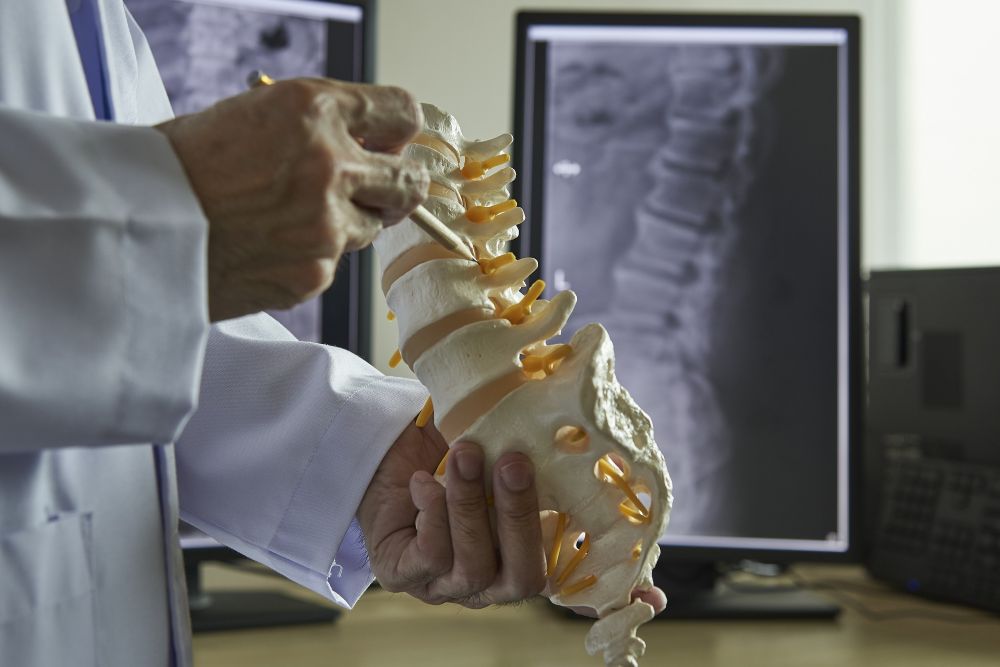
After more than three decades as a neurosurgeon, I have had the profound privilege of helping thousands of patients overcome some of life’s most daunting challenges. From performing intricate surgeries on the brain and spine to pioneering minimally invasive techniques, I have seen firsthand what modern medicine can achieve when coupled with perseverance and hope. My experience has taught me that conditions involving the nervous system can be as complex as they are impactful — and knowing when to seek specialized care can make all the difference.
The nervous system is a complex web of connections controlling every thought, movement and sensation. When something goes awry, it can feel overwhelming, even frightening. But often, the sooner you address these issues the better the chances of recovery. Here are seven reasons you might consider seeing a neurosurgeon — and how we can help guide you toward relief and healing.
1. Chronic pain
Pain that lingers for weeks, months or even years can drastically diminish your quality of life. While pain is your body’s way of signaling that something is wrong, it can become debilitating when it’s left untreated. Patients often come to me experiencing persistent back, neck or nerve-related pain that disrupts their sleep, work and daily routines.
For many the problem lies within the spine or nervous system. Conditions like herniated discs, spinal stenosis or nerve compression can cause relentless discomfort. Through a blend of surgical interventions and noninvasive treatments, we aim to return patients to lives where they’re not ruled by pain but by possibility.
2. Severe or recurrent headaches
We have all endured headaches, but how do you determine when they go from a common annoyance to a cause for concern? Over the years, I’ve seen patients who dismissed severe headaches — only to discover they were signs of something more serious such as a brain tumor or aneurysm.
If you experience headaches accompanied by symptoms like blurry vision, vomiting, seizures or worsening intensity over time, it’s crucial to seek medical attention. While many headaches are benign, others may signal underlying neurological conditions that a neurosurgeon is uniquely qualified to assess and treat.
3. Persistent dizziness
Feeling occasionally lightheaded may not set off alarms, but chronic dizziness warrants closer examination. Dizziness can arise from several neurological causes such as vestibular dysfunction or even issues within the brain itself. Patients often describe sensations of spinning (vertigo) or detachment, which can significantly affect balance and mobility.
When dizziness persists and interferes with daily activities, it’s essential to rule out serious conditions. Our team works collaboratively with neurologists to investigate and treat the root causes, tailoring interventions to fit each patient’s needs.
4. Numbness or tingling
A sensation of pins and needles might seem harmless at first, but persistent or unexplained numbness often points to nerve-related issues. Whether it’s carpal tunnel syndrome, a pinched nerve or the early signs of multiple sclerosis, these sensations deserve attention.
One of the most urgent scenarios I’ve encountered as a neurosurgeon is when sudden numbness or weakness signals a possible stroke. Time is of the essence in such cases, which is why I urge patients to treat sudden changes in sensation as a medical emergency. For other conditions, precise diagnostics and advanced surgical solutions can offer significant relief.
5. Movement disorders
One of the most gratifying aspects of my career has been seeing patients regain mobility and independence after treating movement disorders like Parkinson’s disease. These conditions often manifest as tremors, rigidity or difficulty with balance and coordination.
Deep brain stimulation (DBS) is one of the tools we use to combat these disorders. I have seen it change lives, allowing patients who once struggled to hold a fork or get out of a chair to move freely again. If movement issues are interfering with your ability to live fully, specialized care from a neurosurgeon can provide new hope.
6. Cognitive decline or memory problems
Cognitive changes such as memory loss or confusion can sometimes indicate issues that go beyond normal aging. I have cared for patients with conditions ranging from hydrocephalus to brain tumors to degenerative diseases like Alzheimer’s. For these individuals, catching the problem early can mean better outcomes and more time to enjoy their lives.
Cognitive symptoms can also signal less obvious disorders like trauma-induced brain injuries or even chronic infections. My goal is always to help patients and their families understand the root cause — and offer solutions that prioritize their well-being and dignity.
7. Back and neck pain
For anyone suffering from persistent back or neck pain, you know how deeply it can affect every aspect of your life. From struggling to get out of bed to being unable to play with your children or grandchildren, the impact can be devastating.
Back and neck pain often stem from conditions like herniated discs, spinal instability or sciatica. Treatment options range from physical therapy to targeted surgical procedures such as minimally invasive spinal surgery. These techniques allow for shorter recovery times and less disruption to your daily life. By addressing the source of pain, we aim not just to relieve discomfort but to restore the freedom to move without fear.
Over the years, I’ve watched patients achieve remarkable recoveries — defying the odds and reclaiming their lives. By seeing patient after patient achieve remarkable recoveries, I am more inspired than ever. If you are facing symptoms like these, I encourage you to take the first step toward finding answers. With the remarkable advances in neurosurgical treatments, there is more reason than ever to have hope. At Northside Hospital and Neurosurgery Answer, we’re dedicated to walking this path with you every step of the way.
Learn more about advanced neurosurgical care at Northside Hospital.

